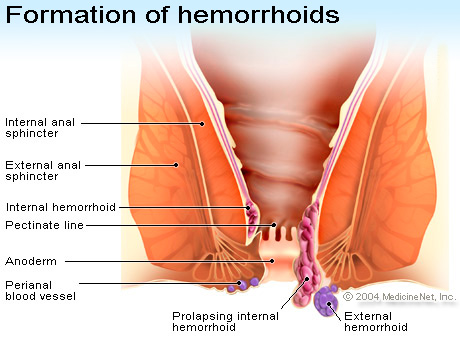
What is a Anorectal ?
Anorectal surgery represents a variable portion of procedures in a general surgical department. However, the spectrum of anorectal surgery is wide, ranging from operations for hemorrhoids to intersphincteric resection for low rectal cancer; therefore, significant surgical expertise is required.
Anorectal surgery is a surgical procedure to treat anal and rectal conditions and cancer, generally by the removal (resection) of a portion of the anus, rectum, and/or part of the sigmoid colon.

What are the causes?
1. Blocked glands in the anal area
2. Infection of an anal fissure
3. Sexually transmitted infection (STD).
What are its symptoms?
1. Discharge of pus from the rectum
2. Constipation
3. Fatigue, fever, night sweats, and chills
4. Redness, painful and hardened tissue in the area of the anus.
Important instructions before surgery:
1. Patients must discuss their medical history with doctor including the medicines taken for the same.
2. Try to stay on light meal before surgery.
3. Take proper rest.
Important instructions after surgery:
1. Initially take a sip of water and have a regular diet an hour later. (Unless advised by doctor.)
2. Follow instructions given by your doctor and nurses.
3. It is advisable that a responsible adult take you home and stay with you for 24 hours due to the anesthesia effect.
Expert Diagnosis & Treatment
Anorectal conditions affect the anus and rectum. Fissures, fistulas, condyloma and hemorrhoids are among the most common anorectal conditions. In some cases, symptoms like pain, itching, burning, bleeding and/or swelling can significantly affect a patient's lifestyle. While most conditions are benign, a careful evaluation by a specialist is important to exclude anal cancer or another serious disorder. Colon and rectal surgeons at the University of Chicago Medicine have expertise in the diagnosis and management of these disorders.
Frequently Asked Questions
It's a surgery to fix problems in your rectum (lower part of your large intestine) and anus (opening where stool leaves your body). Common problems treated include: Hemorrhoids (swollen veins), Fissures (tears in the lining), Fistulas (tunnels that form between the rectum and skin), Abscesses (infected pus pockets), Cancer.
Most people can return to normal activities within 1-2 days. Full healing for some conditions, like abscesses, can take 3-8 weeks.
These are conditions affecting your anus and rectum. Some common ones are: Hemorrhoids: Swollen veins that can cause pain, bleeding, or itching. Fissures: Tears in the anus that cause pain, especially during bowel movements. Fistulas: Tunnels that form between the rectum and skin, causing drainage and pain.
For adults, surgeons often use a position that allows them to see the area. This position isn't suitable for young children.
Yes, but take it easy! Sit for short periods (10-15 minutes) and use a foam cushion, not a donut or rubber ring. Avoid driving while on pain medication.
Get back to your normal diet but add more fiber-rich foods like fruits, vegetables, beans, and whole grains. This helps with bowel movements and avoids constipation. Avoid spicy foods, alcohol, and drinks that can irritate the anus, like coffee and carbonated drinks.
Have a question? call us now
Need support? Drop us an email
Mon – Sat 07:00 – 21:00
We are open on

Saru International, Behind Mahamarg Bus Stand, Opp. To Kelkar Hospital, Gaikwad Nagar, Mumbai Naka, Nashik - 422002.
Phone: +91 80870 30000
Email: sachindeore@yahoo.com